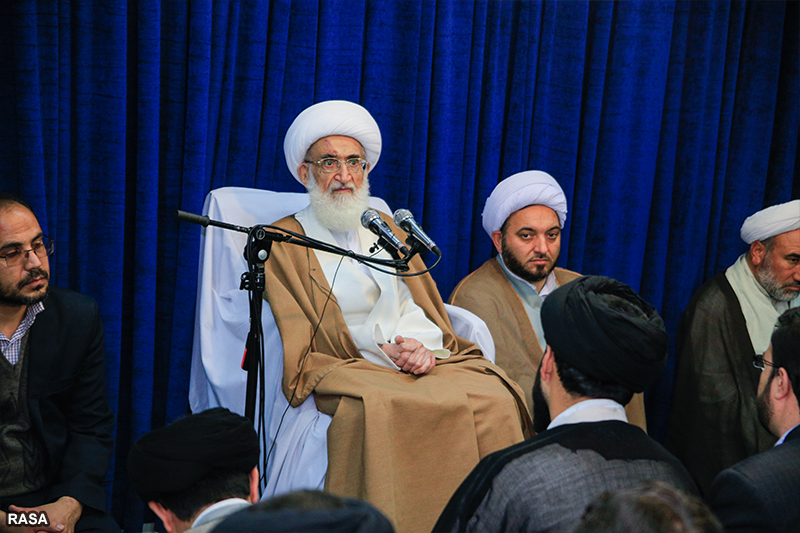
RNA – Grand Ayatollah Hoseyn Nouri-Hamadani has met with members of the Congress of Clerical Martyrs, spoke of the importance of promoting the culture of jihad and martyrdom throughout Iran and emphasized the importance of Wilayat al-Faqih (Guardianship of the Jurisprudent) in the victory of Iran’s 1979 Islamic Revolution.
Emphasizing that the causes and effects of major historical events should be investigated, His Eminence explained that one of the most important causes of the victory of the Islamic Revolution and the victory of the Iranian nation over the forces of ex-Iraqi dictator Saddam Hussein in the difficult eight-year long war of Sacred Defence was the existence of the sacred system of Wilayat al-Faqih.
“The Iranian people sacrificed their lives and everything they had under the command of the Supreme Leader [Imam Khomeini]... There is no single similar relationship in the entire the world where Muslims have such an intimate and profound relationship with the [system of] guardianship,” he explained.
The renowned scholar stated that the Iranian people suffered and were oppressed for many years under a dictator, but suddenly there was a great development in all sectors under the shadow of honourable and glorious system of Wilayat al-Faqih. “The Iranian peoples’ preservation and support of this system led to the victory of the Islamic Revolution,” he stated.
Ayatollah Nouri-Hamadani stressed on the need to preserve the culture of jihad and martyrdom as the security, power and glory of the Islamic Republic of Iran comes from this culture.
He also emphasized on the importance of teaching and promoting Imam Khomeini’s (RA) teachings on jihad in the seminaries, saying that the late founder of the Islamic Revolution’s thought can create a great change in the Islamic Seminary system. He also spoke of the eight different types of jihad.
Ayatollah Nouri-Hamadani also emphasized the necessity for the constant promotion of the culture of jihad and martyrdom from the pulpit and during the elegies recited at religious ceremonies in order to keep it alive, especially for the youth, as elegies are a beneficial method of spreading and reviving Islamic values.
He stated the Iranians should read the books about the Sacred Defence. He stated that Iranians from every social class – from simple clerics to the elite and even women – travelled to the battlefields in western Iran and gave their lives in sacrifice for the victory of the Islamic Revolution over falsehood.
In addition, he emphasized the reading of the wills written by the heroic martyrs, including the women martyrs, who died in the 1980-1988 Iran-Iraq War, stating that they promote an Islamic lifestyle, Wilayat al-Faqih and the attendance of congregational Friday prayers.
111/112